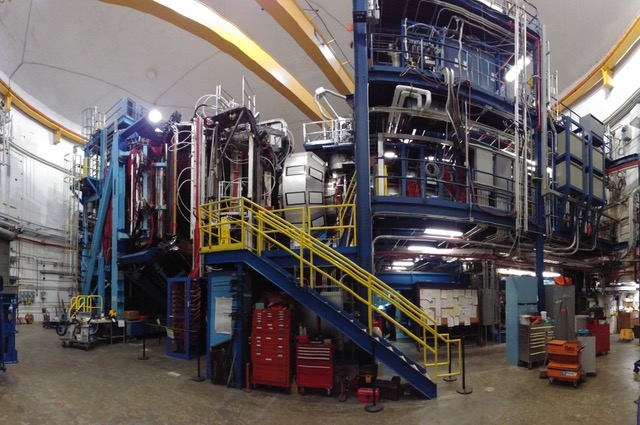The CLAS experiment sheds light on the internal structure of protons
In an experiment performed with the CLAS detector at Jefferson Lab (USA), by using as a probe a beam of polarized electrons accelerated to intermediate energies (of the order of the proton mass), it was possible to measure some global properties of protons polarized in a strong magnetic field. The measurement allows to verify the effective theories derived from quantum chromodynamics (QCD), the theory that describes the fundamental strong force. This allows to improve the understanding of the internal structure and the global properties of the nucleons, that is of the protons and neutrons comprising atomic nuclei, describing the dynamics between their constituents (quarks), and the mediators of the strong force (gluons). The results of the experiment, with a decisive contribution by INFN and some of the spokespersons being Italian, have been published on Nature Physics. New measurements now under way with the new apparatus CLAS 12 (see photo), will complete the picture in the upcoming years, providing more details on the complex interactions among quarks and gluons and on the way they influence the spin of the nucleons.
